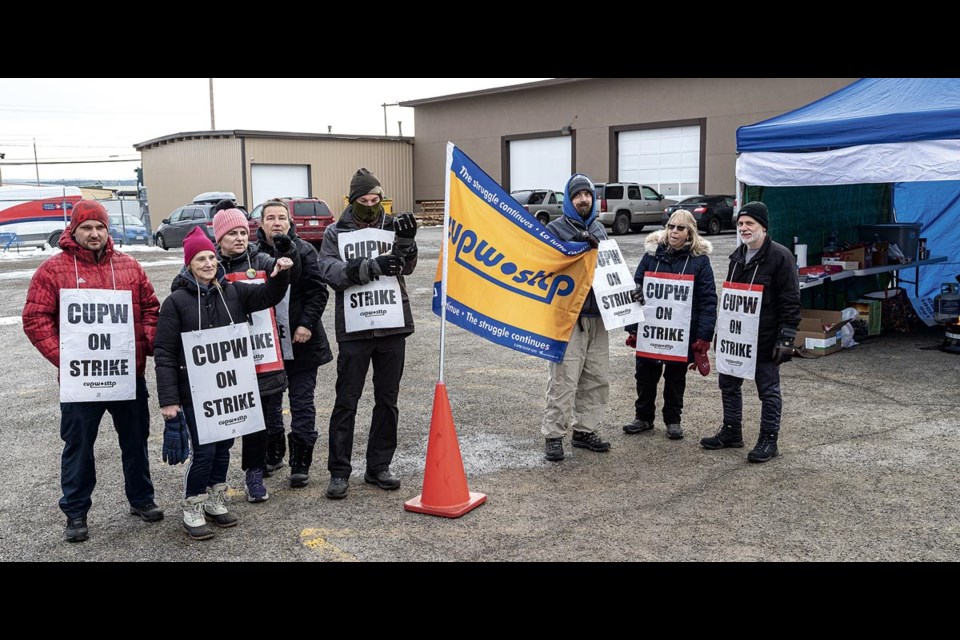An end to a month-long postal strike could be imminent, now that federal Labour Minister Steven MacKinnon has intervened, asking the Canadian Industrial Relations Board to review the state of negotiations and decide if the 55,000 striking workers should be ordered back to work.
If the board considers it unlikely a negotiated settlement can be achieved before the end of the year the union will be served a back-to-work order.
The Canadian Union of Postal Workers walked off the job on Nov. 15, after a year of bargaining failed to address their issues over better pay, job security, pension protection and how to staff weekend delivery services.
That includes 204 members of CUPW Local 812 from Prince George, Vanderhoof, Mackenzie, Burns Lake and Fraser Lake.
The union issued a statement condemning MacKinnon’s action, calling it “an assault on our constitutionally protected right to collectively bargain and to strike.
“This order continues a deeply troubling pattern in which the government uses its arbitrary powers to let employers off the hook, drag their feet, and refuse to bargain in good faith with workers and their unions.”
If a negotiated settlement fails to happen and CUPW workers are forced back to return to their jobs they will be working under terms of the current collective agreement until May 22, 2025.
“While this provides a temporary solution, the government’s priority is to get the parties back on track to resolve the dispute and reach agreements” MacKinnon said, in a prepared statement.
There is still time to get back to the table and come to terms on a negotiated settlement but MacKinnon said it has to be soon, citing the detrimental effects of the strike on small businesses, charities, seniors, Indigenous people and residents of rural and remote communities.
Utility companies will continue to charge customers late fees if they do not pay their monthly bills in time and are urging people to switch to electronic billing to receive their statements. The onus is on customers, including those who still use paper billing, to find out how much they owe and submit their payments through alternate means such as a bank teller.
On Monday, CUPW lowered its wage demands to 19 per cent over four years, down from the 24 per cent increase it was asking when the strike began. Canada Post claims the latest union proposal would add $2.9 billion to the cost of running the postal service in that four years.
Canada Post registered losses of $3 billion since 2018. In 2023, the losses were $748 million and there was a $348 million drop in the third quarter of 2024, which the company says indicates an unstainable business model.
Postal workers are receiving strike pay that amounts to less than $60 per day.
The average hourly wage for Canada Post employees on Canada is $24.72. In Prince George, letter carriers make between $20 and $27 per hour.
The Citizen has reached out to CUPW Local 812 president Rick Harris and is awaiting his reaction to MacKinnon’s request on Friday.



